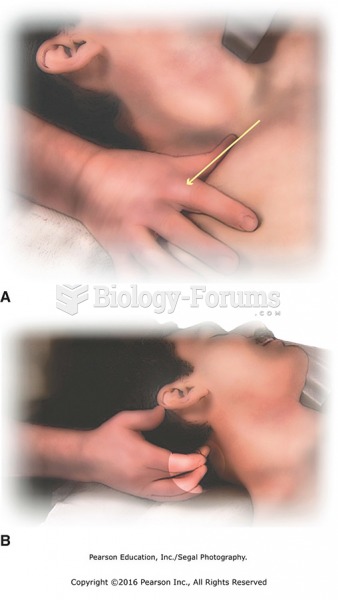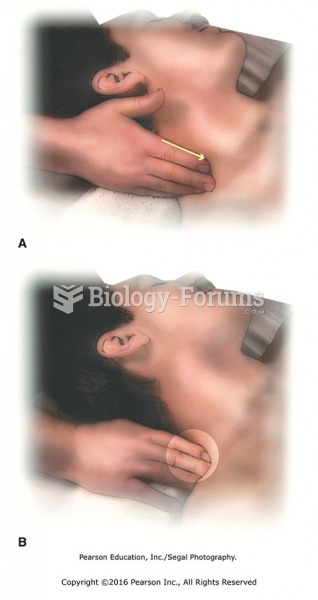This topic contains a solution. Click here to go to the answer
|
|
|
Did you know?
The shortest mature adult human of whom there is independent evidence was Gul Mohammed in India. In 1990, he was measured in New Delhi and stood 22.5 inches tall.
Did you know?
The term pharmacology is derived from the Greek words pharmakon("claim, medicine, poison, or remedy") and logos ("study").
Did you know?
All adverse reactions are commonly charted in red ink in the patient's record and usually are noted on the front of the chart. Failure to follow correct documentation procedures may result in malpractice lawsuits.
Did you know?
Most women experience menopause in their 50s. However, in 1994, an Italian woman gave birth to a baby boy when she was 61 years old.
Did you know?
The first oncogene was discovered in 1970 and was termed SRC (pronounced "SARK").
 For a differential white blood cell count, (A) the slide is examined under oil immersion. (B) Cells ...
For a differential white blood cell count, (A) the slide is examined under oil immersion. (B) Cells ...
 Weak valve springs will produce a normal reading at idle, but as engine speed increases, the needle ...
Weak valve springs will produce a normal reading at idle, but as engine speed increases, the needle ...





